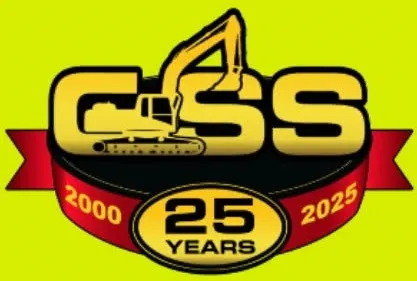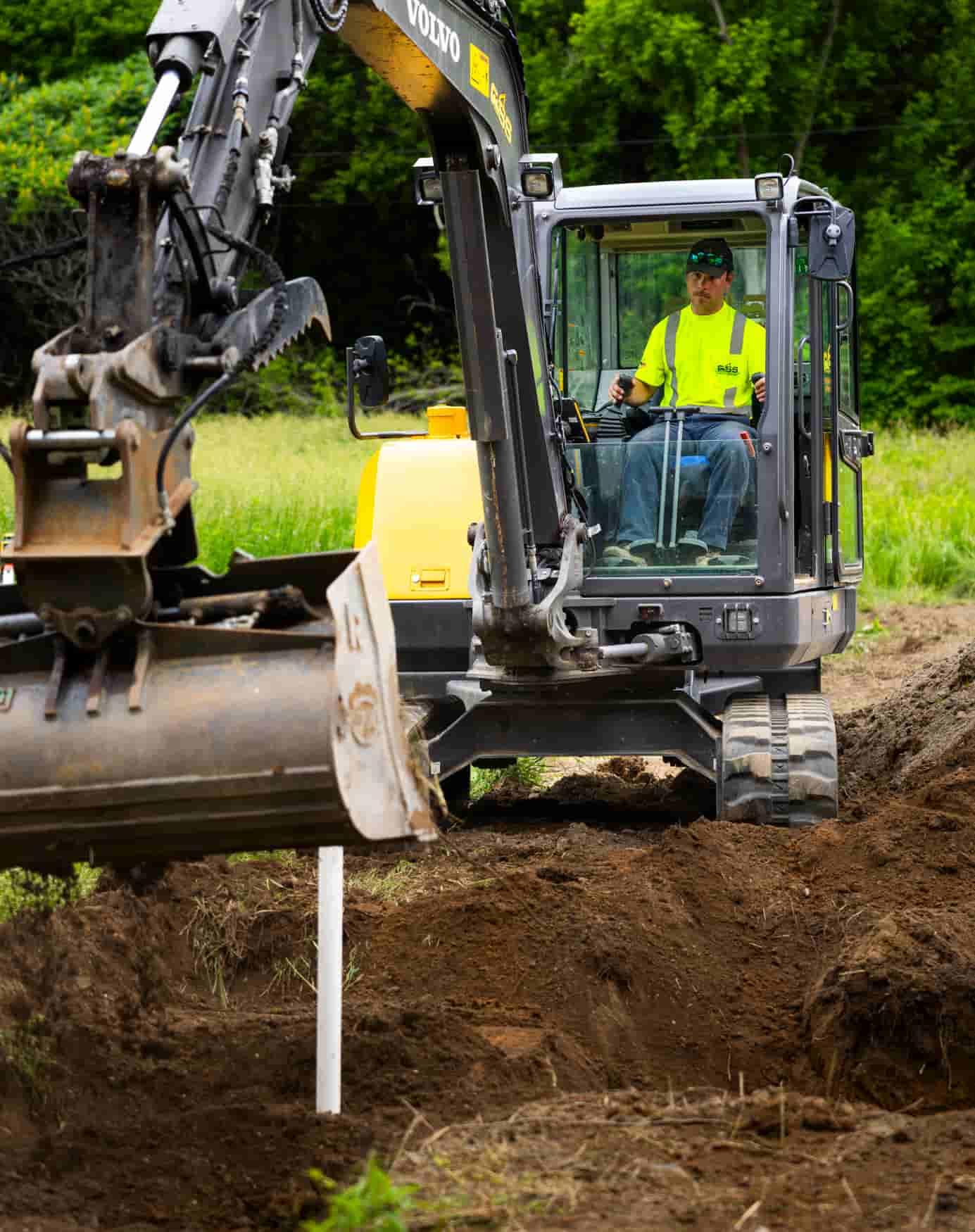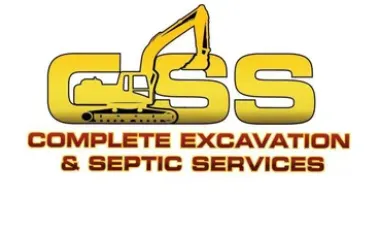
Proudly Serving: Grand Isle, Franklin & Chittenden Counties, VT and Clinton County, NY

DIY vs. Professional Site Preparation Near Chittenden County, VT
What Is Site Preparation and Why It Matters
If you’re planning to build on a piece of land in or near Chittenden County, you’ve likely heard the term “site preparation.” But what does it actually include?
Site prep is everything that happens before the foundation. That means clearing brush and trees, leveling the land, checking the soil, managing drainage, and compacting the ground so your structure doesn’t shift or settle later. It’s more than just pushing dirt around. This is the work that gives your build a solid start.
At Complete Excavation & Septic, we’ve seen what happens when site prep is rushed or skipped. We’re talking about water pooling under homes, cracked concrete, and permits being denied. Whether you’re building a new home, setting a modular, or adding a garage, good site prep is the difference between a smooth project and a costly mess.

Why Some Homeowners Consider DIY Site Prep
We understand. A lot of folks around here are hands-on. If you’ve got access to equipment, or a neighbor with a machine, or even just the urge to do it yourself, it might feel like a smart move.
For most people, DIY site prep comes down to three reasons:
Saving money
Having control over the project
Feeling proud of doing it yourself
And for small projects like clearing a garden spot or prepping for a shed, it might be totally doable. But when it comes to getting land ready for a house or garage, there are a few things worth thinking through first.
The Hidden Risks of DIY Site Preparation
Doing it yourself can seem cheaper at first, but we’ve seen plenty of projects that ended up costing more in the long run. Here are a few reasons why:
Permits and Regulations
Every town in Chittenden County has its own rules. If you’re building on a slope or near water, you might need erosion control plans, special grading permits, or inspections. Skip the paperwork, and you could get shut down before you pour a foundation.
Grading Issues
Grading isn't just about flattening the land. It’s about making sure water drains away from your home. If the slope is off, you could end up with water damage, mold, or flooding.
Soil Compaction
This one gets overlooked a lot. If the soil under your foundation isn't packed properly, it can shift over time. That means cracks in the slab, uneven floors, or worse. Pros use compactors to do this in layers. Most DIY jobs skip that step.
Equipment Risks
Renting an excavator or skid steer sounds easy, but running it takes skill. We’ve seen machines tip, break pipes, and even damage nearby structures. These mistakes get expensive quickly.
Time and Energy
What looks like a weekend job can turn into several weeks. Factor in the cost of your time, fuel, equipment rentals, and rework, and it may not be the deal you thought it was.
What You Get With a Professional Site Prep Contractor
Hiring a contractor who knows Chittenden, Franklin, and Grand Isle Counties brings a few big advantages:
We know the local rules and how to get permits approved
We grade land to make sure water flows the right way
We bring all the right tools, not just the big machines, but compactors, levels, and testing equipment
We get the job done quickly and correctly the first time
At Complete Excavation & Septic, we treat every site like it’s our own. That means taking time to understand the land, check for drainage issues, and create a plan that fits your build—not just moving dirt for the sake of it.
Cost Breakdown: DIY vs. Professional Site Preparation in Chittenden County
Let’s look at the numbers.
DIY Site Prep
Excavator rental: $300 to $500 per day
Dump trailer rental: $100 to $150 per day
Fuel: $100 to $300
Permit fees: varies
Soil compactor rental: $100 per day
Your time: 4 to 6 weekends
Risk of damage or rework: high
If everything goes well, you might spend $3,000 to $5,000. But if something goes wrong, the cost can double quickly.
Professional Site Prep
For a standard home site, most professional prep jobs in Chittenden County cost between $5,000 and $10,000 depending on the size, soil type, and drainage needs.
While that’s more up front, you’re paying for more than labor. You’re paying for experience, permits handled, equipment included, and a clean, finished job that meets code.
Real-Life Examples of DIY Gone Wrong (and Right)
Here are two real examples from jobs we’ve seen:
A homeowner in Franklin County tried to clear and grade a half-acre lot with a rented dozer. He missed a slope requirement in his permit, ended up flooding his neighbor’s yard, and had to pay for drainage work plus fines from the town.
On the other hand, a couple in Grand Isle cleared brush and small trees on their own, then hired us to do the grading and compaction. They saved a little money, stayed on schedule, and avoided the technical parts they weren’t comfortable doing themselves.
There’s no shame in doing some of the work. But knowing when to bring in help can save your project.
When It Makes Sense to Hire a Pro (And When It Doesn’t)
Hire a Pro If:
You’re prepping for a home or garage
Your land has slopes, clay, soft soil, or water issues
You’re working on a deadline
You need town permits or inspections
You don’t have experience running equipment
DIY Might Work If:
You’re clearing a small spot for a shed or patio
The land is flat and dry
You’ve done similar work before
You have time, patience, and backup funds
In the end, it comes down to what your time is worth and how comfortable you are taking on the risk.
How to Choose the Right Site Prep Contractor in Chittenden County
If you decide to hire a pro, don’t just go with the cheapest bid. Here’s what to look for:
Experience in Vermont: Someone who understands our soils, slopes, and regulations
Clear scope of work: Get a written plan with no surprises
Good reviews: Ask around or read feedback from other homeowners
Custom approach: Every site is different. The plan should match your land
Good communication: If they don’t respond before the job starts, it probably won’t get better once they’re on site
Final Thoughts: What’s Really Worth It?
Doing it yourself can be rewarding, but it’s not always the right fit—especially when the ground you build on affects everything that comes after.
For small, low-risk jobs, DIY might work fine. But for homes, garages, and structures with real weight, it pays to get the site prep right from the start.
At Complete Excavation & Septic, we’ve helped dozens of homeowners across Grand Isle, Franklin, and Chittenden Counties get their projects started on solid ground. We’re not here to upsell. We’re here to make sure your investment doesn’t sink—literally.
If you're not sure which path is right for your site, we're happy to take a look, talk it through, and help you figure out what makes the most sense for your build and your budget.

Hours:
Mon - Fri 9:00 am - 5:00 pm
Extended hours by appointment only.



All rights reserved | Privacy policy | Client Support Area
Disclaimer: Septic inspection credit is applied to septic installations only and must be redeemed within 7 days after a written quote provided upon state acceptance of design.
Disclaimer: Septic soil test credit is applied to septic installations only and must be redeemed within 7 days after a written quote provided upon state acceptance of design.
